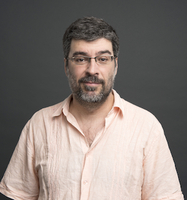
Luís A. Nunes Amaral
Professor of Engineering Sciences and Applied Mathematics
Professor of Medicine (by courtesy)
Professor of Molecular Biosciences (by courtesy)
Professor of Physics & Astronomy (by courtesy)
Engineering Sciences and Applied Mathematics
2145 Sheridan Road (Room M426)
Evanston, IL 60208, US
Phone:
+1 847-491-7850

A solution to the challenge of optimization on ''golf-course''-like fitness landscapes
PLOS ONE 8, e78401 (2013)
Abstract
Genetic algorithms (GAs) have been used to find efficient solutions to numerous fundamental and applied problems. While GAs are a robust and flexible approach to solve complex problems, there are some situations under which they perform poorly. Here, we introduce a genetic algorithm approach that is able to solve complex tasks plagued by so-called ''golf-course''-like fitness landscapes. Our approach, which we denote variable environment genetic algorithms (VEGAs), is able to find highly efficient solutions by inducing environmental changes that require more complex solutions and thus creating an evolutionary drive. Using the density classification task, a paradigmatic computer science problem, as a case study, we show that more complex rules that preserve information about the solution to simpler tasks can adapt to more challenging environments. Interestingly, we find that conservative strategies, which have a bias toward the current state, evolve naturally as a highly efficient solution to the density classification task under noisy conditions.